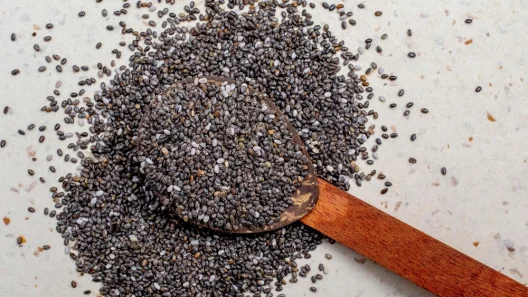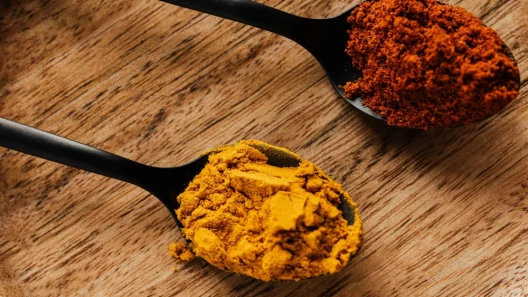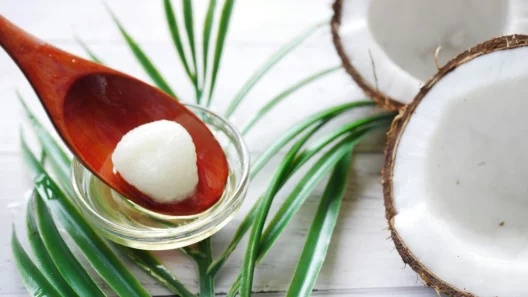Hair thickness is more than just a cosmetic concern – it’s often a visible reflection of our overall health and well-being. For many people, experiencing hair thinning or loss can significantly impact self-esteem and quality of life. In fact, studies show that more than 50% of women and 70% of men will experience some form of hair thinning by age 50 . While genetics, hormonal changes, and medical conditions play significant roles in hair health, growing interest in natural remedies has emerged as people seek gentler alternatives to commercial treatments. At MyGreenRemedy, we believe in taking a holistic approach to hair health – one that combines traditional wisdom with modern scientific understanding to help you achieve the thicker, healthier hair you desire.
Understanding Hair Growth
The Hair Growth Cycle
To effectively address hair thinning, it’s essential to understand the natural hair growth cycle. Each hair follicle goes through four distinct phases:
- Anagen (growth phase): Lasts 2-8 years for scalp hair, during which the hair actively grows
- Catagen (transition phase): A brief 2-3 week period where hair growth stops and the follicle shrinks
- Telogen (resting phase): A 2-3 month period where the hair remains in place but doesn’t grow
- Exogen (shedding phase): The final stage where hair naturally falls out, making room for new growth
At any given time, approximately 9% of scalp hairs are in the telogen phase, with the healthy anagen-to-telogen ratio being approximately 12:1 to 14:1 . Various factors can disrupt this delicate balance, leading to increased shedding or thinning.
Factors Influencing Hair Health
Multiple elements contribute to hair thickness and overall health:
- Nutritional status: Deficiencies in protein, iron, biotin, zinc, and other nutrients can significantly impact hair growth and strength
- Hormonal balance: Thyroid disorders, hormonal fluctuations, and dihydrotestosterone (DHT) sensitivity can all affect hair follicle function
- Scalp health: Inflammation, microbial imbalances, and poor circulation can impair hair follicle function and growth
- Stress levels: Psychological and physical stress can trigger telogen effluvium, a condition where more hairs enter the shedding phase prematurely
op Natural Remedies for Thicker Hair
Aloe Vera: Scalp Soother and Hair Strengthener
Aloe vera has been used for centuries to promote hair and scalp health. Its moisturizing, anti-inflammatory, and antimicrobial properties make it particularly beneficial for creating an optimal environment for hair growth. Aloe vera contains vitamin B12 and folic acid, both of which may help prevent hair loss . While human studies specifically on aloe vera for hair growth are limited, its demonstrated benefits for skin health and wound healing suggest potential applications for scalp health. Many people find that aloe vera helps soothe scalp irritation and reduce flakiness, which can create better conditions for hair growth.
Rosemary Oil: Evidence-Based Growth Promoter
Rosemary oil stands out among natural remedies with substantial scientific support for its hair-thickening properties. A 2015 study published in the journal Skinmed found that rosemary oil was as effective as minoxidil 2% in promoting hair growth in people with androgenetic alopecia, with the added benefit of causing less scalp itching as a side effect . The proposed mechanisms include:
- Improved scalp circulation through vasodilation
- Anti-inflammatory effects that create a better environment for hair growth
- Potential DHT-blocking activity similar to conventional hair loss treatments
Castor Oil: Nutrient-Rich Traditional Remedy
Castor oil has a long history of use in traditional hair care practices. Rich in ricinoleic acid (a unique fatty acid with anti-inflammatory properties) and vitamin E, castor oil may help nourish both hair and scalp. While human studies are limited, animal research has shown promising results. A 2021 study on rabbits found that applying 30-40% castor oil lotion increased the length, thickness, and softness of fur compared to a control group . Many users report that regular castor oil applications help improve hair texture and reduce breakage.
Coconut Oil: Moisturizer and Protein Protector
Coconut oil has earned its reputation as a valuable hair care ingredient through demonstrated effects on hair structure. Research shows that coconut oil can penetrate the hair shaft more effectively than other oils, helping to reduce protein loss and prevent damage . By filling the gaps in the hair cuticle, coconut oil helps maintain moisture balance and improve hair elasticity, resulting in less breakage and thicker-appearing hair over time. While it may not directly stimulate new growth, its protective effects can help preserve existing hair length and volume.
Onion Juice: Sulfur-Rich Follicle Stimulant
Though perhaps not the most aromatically pleasing option, onion juice has shown surprising potential in clinical studies for promoting hair growth. The high sulfur content of onions may help improve blood circulation to hair follicles and provide the building blocks for stronger hair. A small study of people with alopecia areata found that 74% of participants showed significant hair regrowth after applying onion juice twice daily for 6 weeks . While more research is needed, these results suggest onion juice may be worth considering for those struggling with certain types of hair loss.
Herbal Teas and Rinses: Natural Conditioners
Various herbal teas and rinses can provide benefits for hair thickness and health:
- Hibiscus: Rich in vitamins and antioxidants, hibiscus flowers are traditionally used to prevent hair loss and promote growth
- Fenugreek: The seeds contain hormone precursors and proteins that may help strengthen hair and prevent dryness
- Green tea: The epigallocatechin gallate (EGCG) in green tea may help inhibit 5-alpha-reductase, an enzyme that converts testosterone to DHT (which can contribute to pattern hair loss)
Table: Comparison of Natural Oils for Hair Growth
| Oil | Key Components | Proposed Mechanism | Scientific Support |
| Rosemary | 1,8-cineole, camphor, α-pinene | Improved circulation, anti-inflammatory, DHT inhibition | Strong (human studies) |
| Castor | Ricinoleic acid, vitamin E | Anti-inflammatory, moisturizing | Moderate (animal studies) |
| Coconut | Lauric acid, medium-chain fatty acids | Protein protection, moisture retention | Strong (hair structure studies) |
| Pumpkin Seed | Beta-sitosterol, zinc | DHT inhibition, nutrient support | Strong (human studies) |
3 Lifestyle & Dietary Support
Nutrition for Hair Health
Dietary factors play a crucial role in supporting hair thickness and growth. Key nutrients include:
- Protein: Hair is primarily made of keratin, a protein that requires adequate dietary protein for synthesis
- Biotin: This B-vitamin supports keratin production, though supplementation mainly benefits those with deficiencies
- Iron: Essential for oxygen transport to hair follicles; deficiency is linked to hair loss
- Omega-3 fatty acids: Found in fatty fish, flaxseeds, and walnuts, these healthy fats support scalp health and reduce inflammation
- Zinc: Important for hair tissue growth and repair; deficiency can lead to hair shedding
Stress Management and Mindfulness
Chronic stress can significantly impact hair health by shifting hairs prematurely into the telogen (resting) phase of the growth cycle . Incorporating stress-reduction techniques such as meditation, yoga, deep breathing exercises, and adequate sleep can help maintain optimal hair growth conditions. One study found that regular scalp massage not only improved hair thickness but also reduced perceived stress levels .
Looking to learn more about holistic approaches to wellness? Start with our Ultimate Guide to Natural Remedies for Everyday Health.
How to Safely Use These Remedies
DIY Applications and Recipes
Natural hair treatments can be incorporated into your routine in various ways:
- Oil treatments: Combine 2-3 tablespoons of your chosen carrier oil (coconut, castor, or olive) with a few drops of essential oil (rosemary or peppermint). Warm gently and massage into scalp. Leave on for 30-60 minutes before shampooing.
- Herbal rinses: Steep 2-3 tablespoons of dried herbs (hibiscus, fenugreek, or green tea) in 2 cups of boiling water for 30 minutes. Strain and cool, then use as a final rinse after shampooing.
- Aloe vera mask: Mix ¼ cup fresh aloe vera gel with 1 tablespoon coconut oil and 5 drops of rosemary essential oil. Apply to scalp and hair, leave on for 45 minutes, then rinse thoroughly.
Frequency and Best Practices
For optimal results:
- Consistency is key – most natural remedies require regular use over several months to show visible results
- Scalp massage during application helps stimulate blood circulation to hair follicles
- Gentle handling of wet hair prevents breakage and preserves length
- Limit heat styling and chemical processing to minimize damage to hair shafts
Patch Testing for Allergies
Before using any new natural remedy:
- Perform a patch test by applying a small amount of the product to your inner forearm
- Wait 24-48 hours to check for any signs of irritation or allergic reaction
- Discontinue use immediately if redness, itching, or swelling occurs
What Natural Remedies Can’t Do
Setting Realistic Expectations
While natural remedies can support hair health and improve thickness, it’s important to maintain realistic expectations. These approaches:
- Cannot reverse genetic predisposition to pattern baldness completely
- Work gradually, often requiring 3-6 months of consistent use before visible improvements
- May not be sufficient for addressing hair loss caused by medical conditions, hormonal imbalances, or nutritional deficiencies without additional interventions
When to Seek Professional Help
Consult a dermatologist or trichologist if you experience:
- Sudden or patchy hair loss
- Burning, itching, or pain on the scalp
- Hair loss accompanied by other symptoms like fatigue or weight changes
- No improvement after 6 months of consistent natural treatment
FAQs
How long does it take to see results from natural hair remedies?
Most natural remedies require consistent use for 3-6 months before visible improvements become apparent. Hair grows slowly (about ½ inch per month), and changes in the growth cycle take time to manifest as noticeable thickness improvements .
Can natural remedies replace medical treatments for hair loss?
While natural remedies can be effective for maintaining hair health and addressing mild thinning, they typically cannot replace medical treatments for more advanced pattern baldness or medical hair loss conditions. A combined approach often yields the best results .
Which oil works best for hair growth?
Rosemary oil has the strongest scientific evidence supporting its efficacy for hair growth, showing comparable results to minoxidil 2% in clinical studies . Pumpkin seed oil also has good scientific support for addressing pattern hair loss .
Are there any side effects to using natural hair remedies?
While generally safe, some natural remedies can cause:
- Allergic reactions in sensitive individuals (always patch test first)
- Scalp irritation from essential oils if not properly diluted
- Buildup on hair and scalp if not properly cleansed
Conclusion
Achieving thicker, healthier hair through natural remedies is a journey of patience and consistency rather than a quick fix. By combining evidence-based natural treatments like rosemary oil and coconut oil with proper nutrition, stress management, and gentle hair care practices, you can create optimal conditions for your hair to thrive. Remember that results vary based on individual factors, and what works for one person may not work for another. The most effective approach is often a balanced, holistic strategy that addresses both internal and external factors influencing hair health. At MyGreenRemedy, we encourage you to embrace these natural solutions as part of a comprehensive self-care routine while recognizing when professional guidance might be necessary. With time and dedication, you can work toward the thicker, healthier hair you deserve.










